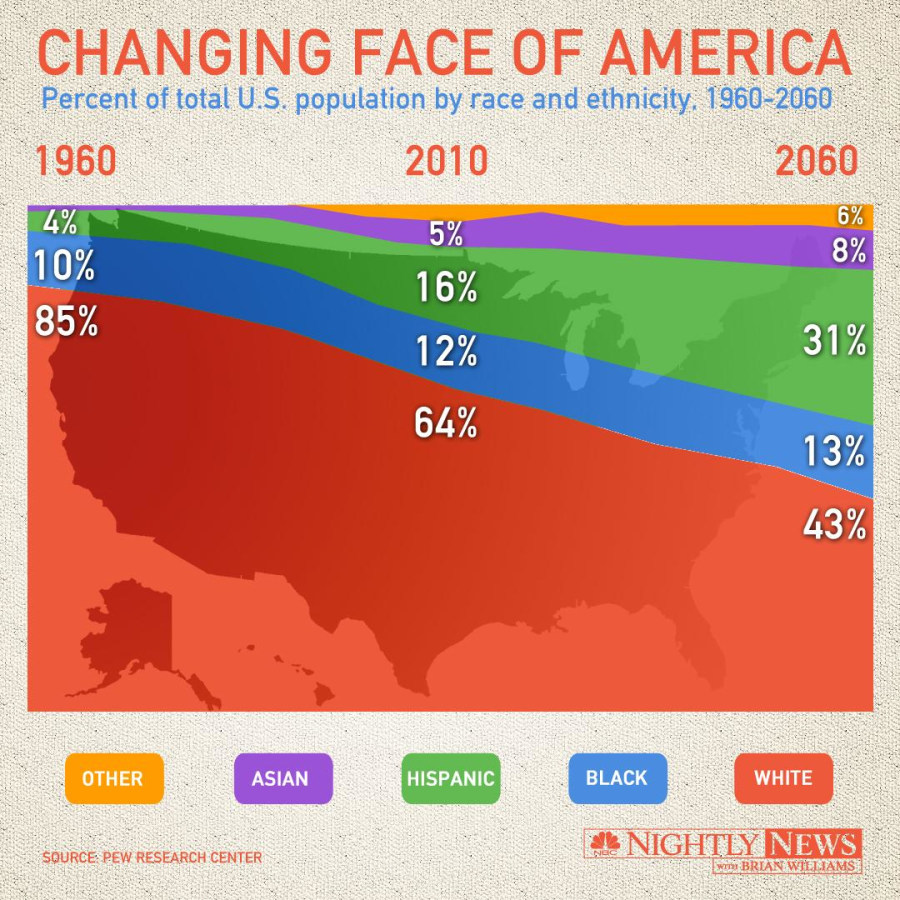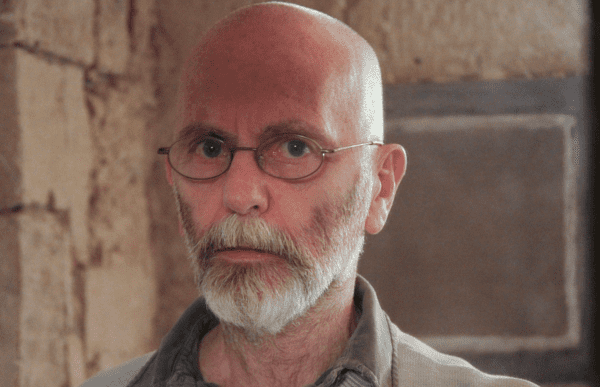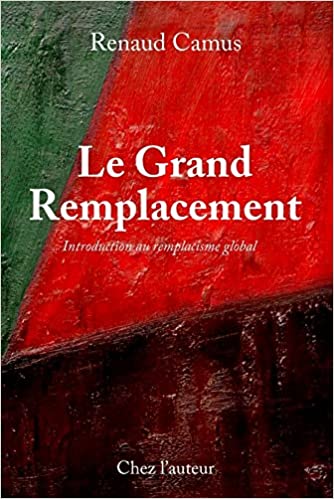Earlier, by Peter Brimelow: Was The Buffalo Massacre (Bad!) Caused By The Great Replacement (Undeniable)?
On May 14, 18-year-old Payton Gendron shot 13 people at a Tops supermarket in Buffalo, New York, killing 10. All but two of his victims were black. In a 180-page manifesto [PDF] that is now almost impossible to find, Mr. Gendron justified the massacre as a blow against The Great Replacement:
This crisis of mass immigration and sub-replacement fertility is an assault on the European people that, if not combated, will ultimately result in the complete racial and cultural replacement of the European people. Mass immigration will disenfranchise us, subvert our nations, destroy our communities, destroy our ethnic ties, destroy our cultures, destroy our peoples.
Mr. Gendron wrote about many things: Jews, “rampant nihilism, consumerism and individualism,” “soulless metropolitan architecture,” fiat currency, and—at obsessive length—about weapons, ammunition, body armor, and boots.
In a Q&A section, he answered the question of whether he hated blacks. “A black man or woman living in their homelands? No. A black man or woman choosing to invade our lands, live on our soil . . . ? Yes, I dislike them.” His plan of action was blood-curdling: “I [will] shoot all black people twice in the chest if possible; I shoot all downed blacks twice in the head.”
However, Mr. Gendron also wrote: “The only people I truly hate are the converts, those from our own people [whites] that turn their backs on their heritage, turn their backs on their cultures, turn their back on their traditions and become blood traitors to their own race.”
Everything Mr. Gendron wrote and did was driven by fury at the replacement of whites in traditionally white-majority nations: “To preserve our cultures and people we must be physically separated,” he wrote. “Whites do not belong in Nigeria the same reason why blacks do not belong in England.”
Mr. Gendron was prepared to die to stop replacement: “Live or die, know I did it all for you; my friends, my family, my people, my culture, my race.”
What is “The Great Replacement” and why does it evoke such passion? The phrase is shorthand for large population changes such as this one:

In 1960, whites were 85 percent of the U.S. population, and assumed they would always to be the overwhelming majority. Today, they are down to 58 percent, and by 2060, their numbers are projected to drop to 43 percent.
The same process is underway in every traditionally white nation. In Britain and France, natives are expected to become minorities by 2060 or so. Whites who don’t welcome decline face insult and hostility. First, they hear that replacement is imaginary. A search for it on YouTube brings up a warning banner that calls The Great Replacement “a white nationalist right-wing conspiracy theory.”
A 2019 article in the New York Times called the idea “bonkers.” Farhad Manjoo explained that “as a group, they [whites] are only maybe, possibly, becoming a smaller share of the population in the United States and Europe.” “Only maybe, possibly”? Another 2019 article in the Times called replacement “a racist, sexist doctrine.”
Facts are not racist or sexist. The 2020 census found that in the previous 10 years, the Asian population in the United States had grown by 35 percent, Hispanics by 23 percent, and blacks by 5.6 percent, while the number of whites declined by 8.6 percent. Charles Blow of the New York Times wrote that “it was a terrifying census for white nationalists.”
For those who welcome white replacement, it is not a conspiracy but something to celebrate. Filmmaker Michael Moore declared the Census Bureau’s release of the same 2020 data, “the best day ever in U.S. History.”

Payton Gendron (Credit Image: © Erie County DA)
Curiously, after the Buffalo shooting, the Times was back to worrying about “A Fringe Conspiracy Theory.” Just today, the paper called replacement a “false, fringe conspiracy theory” in an article in which the new press secretary, Karine Jean-Pierre, denounced “people who spread this filth.”
In January 2009, the Atlantic presumably spread filth in an article called “The End of White America?” by an English professor named Hua Hsu. By the end of the article, the question mark had disappeared: “If the end of white America is a cultural and demographic inevitability, what will the new mainstream look like—and how will white Americans fit into it? What will it mean to be white when whiteness is no longer the norm?” These are good questions, but the only correct response is cheerful anticipation. [T]he “soon-to-be white minority’s sense of being besieged and disdained by a multicultural majority grows apace,” Prof. Hsu concluded, but whites should relax because “whiteness has no inherent meaning” [emphasis in the original].
Just before the 2020 election, New York Times columnist Roger Cohen called the contest “Trump’s Last Stand for White America”:
“The great replacement” is a phrase generally attributed to a French writer, Renaud Camus, who said: “The great replacement is very simple. You have one people, and in the space of a generation, you have a different people.” That, of course, is a good definition of America. Of its vitality, its churn, its reinvention, its essential openness.
The Great Replacement is a sick illusion of you don’t want it, a welcome prospect if you do.

Renaud Camus (Image via Wikimedia)
Promoters of replacement expect wonderful changes. Twenty years ago, political scientist Ruy Teixeira and journalist John Judis wrote a book called The Emerging Democratic Majority. They didn’t talk about replacement; Mr. Teixeira refers instead to “the browning of America,” which will usher in “a new progressive era.”
In 2015, the Washington Post made a very specific progressive prediction in a piece called “The NRA will fall. It’s inevitable.” The author says, “Just look at the demographics”:
Whites tend to favor gun rights over gun control by a significant margin (57 percent to 40 percent). Yet whites, who comprise 63 percent of the population today, won’t be in the majority for long. Racial minorities are soon to be a majority, and they are the nation’s strongest supporters of strict gun laws.
If it is lauded as a means to progressive ends, The Great Replacement is a welcome fact.
When Virginia went Democrat after decades of Republicanism, one newspaper made a pun out of “Democratic” and “Demographic”: “The Democraphic Tide Washes Over Virginia.” The New York Times agreed: “[W]hile political leaders come and go, the deeper, more lasting force at work is demographics.”
Editor of the now-defunct Weekly Standard, Bill Kristol, tweeted this about the 2018 elections: “One has to say that today, in America, demography sure seems to be destiny.”

And in a following tweet, “We’re running a census every two years as much as an election.”

Just last year, CNN wrote that “The Census shows the GOP base is shrinking fast” because “these numbers suggest a bleak future for the Republican Party, which finds its strongest support among Whites.”
CNN is probably right. There was a time when presidential elections were simple: Whoever won the white vote went to the White House. No longer. The last time a majority of whites voted for a Democrat was for Lyndon Johnson in 1964—nearly 60 years ago. Now, a Democrat can badly lose the white vote but still win, because non-whites vote overwhelmingly Democrat. Every Democrat president since Johnson—Carter, Clinton, Obama, Biden—won with only a minority of the white vote. Mr. Obama got just 41 percent, Mr. Biden 44 percent. White people didn’t get the president they wanted. Why? Because of the great . . . no. Because of a white-supremacist conspiracy theory.
Why, therefore, is it wrong for Republicans to oppose population change, if only because it means a giant political shift that favors their opponents? Immigration is—or should be—a choice, a policy decision. If immigrants were building a permanent Republican majority, Democrats would not call The Great Replacement “bonkers” or “sexist.”
White decline is not just about politics. “What will it mean to be white when whiteness is no longer the norm?” asked Professor Hsu, at a time before it was common to teach white school children that they are inherent oppressors whose very existence perpetuates systemic racism. Is it such a surprise that some whites may not welcome replacement?
The question is even greater: What does replacement mean for America? Despite every attempt to deny it, whites—Europeans—gave the United States its culture, language, institutions, and texture of life. Wherever Europeans went in large numbers—Australia, New Zealand, South Africa, Canada—they built similar nations.

Europeans—like all people—love their land, their culture, their heritage. This love is one of the strongest collective feelings known to our species. Countless people gave their lives in the name of that love. They died stopping replacement. In the past, replacement was always by force. Today, for the first time in human history, nations that have the means to stop replacement-through-immigration allow it and even encourage it. Whites who were young in a white America grow old in a strange and different country, one they never expected. Opposing replacement is not aberrant or unhealthy; welcoming it is aberrant.
Non-violent replacement has the same results as military occupation. If Mexico had conquered parts of the Southwest, there would be a dominant Mexican/Hispanic presence of language, culture, aspirations, people—which is what we find today. Whites dare not complain about this Great Replacement. Instead, they quietly move to those shrinking parts of the country that still have white majorities. Even the staunchest promoters of “diversity” do this, apparently unaware of their hypocrisy.
Today, the entire West is united in support for Ukraine against Russia. Why? Because it is fighting The Great Replacement—this one armed. But if Ukraine saw a huge influx of Russians—people of the same race, religion, a recent history together, and with mutually intelligible languages—would Ukraine be changed even a fraction as much as The Great Replacement is changing the United States?
Nations have a powerful urge to protect their identities. It is Basic Law—part of the unwritten constitution—that Israel is a Jewish state. This officially recognizes a precious identity that replacement would destroy. All non-white nations have an equally powerful, instinctive opposition to replacement. What Turk or Thai or Tunisian would even think of setting in motion policies that would reduce their people to a minority, whether religious, racial, or linguistic?
White-majority countries are unique in demonizing anyone who wants to preserve the nation of his ancestors and applauding those who want it changed. In no nation—ever—were whites asked if they wanted their numbers to decline, their influence to dwindle, to see their children become minorities. Now, as it dawns on them what is happening, even to notice is to be called a deluded racist.
And that is why, sickening as his actions were, there will be more Payton Gendrons. I already predicted him. In 2019, I wrote about an earlier mass murderer, whom Mr. Gendron cites as an inspiration: Brenton Tarrant, who killed 50 Muslim worshippers in Christchurch, New Zealand, and who has been sentenced to life in prison.
Mr. Tarrant also believed he was fighting replacement. He, too, had a manifesto, which he called “The Great Replacement.” It has been suppressed, just as Mr. Gendron’s is being suppressed. In New Zealand, it is a crime, punishable by up to 10 years in prison, to own a copy.
After the Christchurch shooting there were calls for censorship in the United States as well. The Washington Post wrote that Mr. Tarrant’s mind was poisoned because “he spent his days slinking through online cesspools” and that he got his ideas from “the fervid extremism that suffuses the Internet’s darkest crevices.” The New York Times agreed:
The internet is now the place where the seeds of extremism are planted and watered, where platform incentives guide creators toward the ideological poles, and where people with hateful and violent beliefs can find and feed off one another. . . .
[W]e need to understand and address the poisonous pipeline of extremism that has emerged over the past several years.
USA Today wanted all documents like the manifesto suppressed, and the Washington Post wrote that “‘replacement’ ideology is an unacceptable trope in civilized discourse.”
Many people would forbid all talk of The Great Replacement. They say it is such a dangerous idea that it drives people to mass murder—but all strongly held ideas have that potential. Many people believe climate change is a mortal threat. If one of them shot up the executive floor of ExxonMobil, would that mean climate change was no longer happening and had become a “fringe conspiracy theory”? Many people have killed in the name of Islam. Should we ban Islam? The Black Lives Matter movement in 2020 led to the worst rioting and property destruction in U.S. history. Does that mean the ideas behind it are “bonkers” and must be banned?
Anyone who wants to outlaw any talk of The Great Replacement should consider this: There is now sustained outrage over a leaked Supreme Court decision on abortion. What if all those angry people were treated like fools or lunatics, banished from newspaper columns, kept off radio and TV, blocked on social media? Might they lose faith in the political process? Would there be more or less political violence? As I wrote after the Christchurch attacks, censorship makes future killers inevitable.
What could have prevented Mr. Tarrant’s or Mr. Gendron’s rampages? Not more repression, censorship, and demonization. That is what caused them.
Let us instead imagine a political environment of open discussion about the demographic future, one in which it is not considered “hate” to ask: How many people should our country have? Do we need any immigrants? Do people of certain religions or races assimilate better than others? Why do people of different races build different societies? Is diversity a strength or a weakness? Is it wrong for whites to prefer to live, marry, and work with other whites? Must whites become a minority?
I have been asking these questions—politely but pointedly—for 30 years. I believe that the long-term solution to racial and ethnic conflict is not to force more “diversity” on people who never asked for it, but to let them, if they wish, build separate communities. This must be achieved only through the political process.
For this, I am called a “hater.” Twitter closed my account, Amazon banned my books, my organization lost its Facebook account, hotels will not rent meeting rooms to me, printers refuse my business, and payment processors have cut me off. Other dissident groups are harassed and silenced in exactly the same way. Any society that crushes opposing viewpoints is treating dissent as a crime. The entire West is, in this sense, rushing towards tyranny.
After Christchurch I wrote:
Terrorists kill when they believe every non-violent alternative has been closed off. They reject politics because they think the system is rigged. Being silenced does not mean abandoning deeply held convictions; it means acting outside of politics.
Millions of people in the West who are revolted by Mr. Tarrant’s actions nevertheless sympathize with his stated goal: to ensure the survival of his people. They trust in the democratic process to give them a voice in determining policy, but people can lose faith in democracy when their sincere beliefs are dismissed as “hate,” when their views are censored, and when they are forced out of politics and public discourse.
Ideas shared by many people do not disappear just because they are driven underground. They reappear in unexpected and sickening ways. . . .
Mr. Tarrant committed a horrible act of mass murder. Anyone who sincerely wants to prevent such murders should remember this: When people have a voice, they speak; when they don’t have a voice, they kill.
And that is why, sick and twisted as he is, there will be more Payton Gendrons.
Jared Taylor [Email him] is the editor of American Renaissance. You can follow him on Parler and Gab.